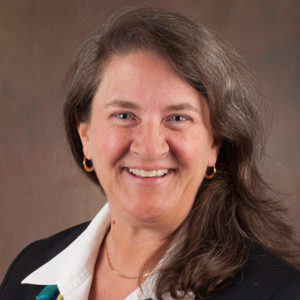$12 million in eMINTS grants to boost science education, literacy
MU researchers use a video game to teach science lessons to middle schoolers, speech recognition software to improve literacy outcomes for 2nd graders.
When James Laffey was doing research for his dissertation in South Side Chicago schools, he noticed many students were either not engaged in the curriculum or struggling to be motivated about certain subjects, especially science.

“I have always been interested in how we can best motivate students to learn, and perhaps the more traditional approaches of teachers lecturing students and assigning paperwork is not the most engaging,” said Laffey, now a professor emeritus in the School of Information Science & Learning Technologies. “Given that nearly half of Americans play video games and 74% of parents believe games can be educational for their children, I thought creating a video game that incorporates science curriculum in a fun and innovative way could spark interest in science among middle schoolers.”
With the help of a 5-year, $8 million grant from the United States Department of Education, Laffey and his team are partnering with MU’s eMINTS National Center and the Missouri Research and Education Network (MOREnet) to expand his video game, Mission HydroSci, into 60 middle school classrooms across the country. Laffey’s project is one of two MU partnerships with eMINTS made possible through recent grants from the U.S. Department of Education. The other project involved using speech recognition software to improve literacy for second graders.
Laffey’s game allows players to go on a virtual journey where they learn about various water system topics, including water flow, ground water, atmospheric water and water contamination, and then use their knowledge to solve challenges in order to complete missions.
“Similar to the Matt Damon movie ‘The Martian’, the video game characters are placed in dire circumstances in outer space after crash-landing on an earth-like planet, and the students must use scientific argumentation and critical thinking skills to apply what they have learned about water systems to make the best decisions for survival,” Laffey said. “In some of the schools where we have tested the game, teachers noticed the students who traditionally struggled with science were engaged, having fun while learning, and even helping out other students in the class who were struggling with certain missions.”
The eMINTS National Center is providing professional development and technology support for the participating middle schools, helping teachers implement the technology into their classrooms and curriculum. Laffey explained the early success of the video game, which will be offered on portable tablets when the grant is completed, shows students can become leaders and interested in science if classroom activities are offered in a more fun, innovative way.
“It is important we as educators bring out the talent and confidence in our students so they are prepared to tackle a whole range of issues in society later on in their lives,” Laffey said. “Whether it is dealing with climate change, water systems or medical issues, our decisions in life should be based on science at the core, and using a video game can help students become more engaged as they learn how to make sense of it all.”
Talk-to-read ©
As a former second grade teacher in South Carolina, Betsy Baker knows firsthand the importance of reading and writing for future success in school and life.

“Previous research has shown students who are proficient readers by third grade are far more likely to finish high school, become employed, stay out of jail and remain off various government assistance programs,” said Baker, now a professor in the MU College of Education and Human Development. “Literacy and communication are at the core of our experiences as humans, so I am passionate about finding creative instructional approaches teachers can use to help their students read and write so they are set up for success later on in their lives.”
Like Laffey, Baker is partnering with MU’s eMINTS National Center thanks to a $4 million grant from the U.S. Department of Education. She will be using speech recognition software that allows second graders to speak verbally to their personal tablets and watch their words appear on the screen.
“Particularly in rural, high-poverty areas, the traditional materials students are given in school often do not reflect their personal experiences, cultures or languages, so they may quickly become disengaged and disinterested,” Baker said. “With this talk-to-read approach, we are putting the kids in the driver seat. They can watch their own words, stories and experiences become written words by simply talking to their tablet, and we have found the students proficiently learn these words quicker because they are meaningful to them.”
The curriculum will be implemented in underserved, rural Missouri school districts with high rates of free and reduced-price lunch programs. More than 90 second grade teachers and 1,800 total students will be served, with eMINTS providing professional development and on-site support to help implement the technology.
“Outreach is at the heart of what we do,” said Cara Wylie, associate director of the eMINTS National Center, which provides research-based professional development to help teachers integrate technology into their classrooms. “The ultimate goal is to improve vocabulary and reading comprehension for the students, and it is rewarding to see the boost in self-esteem and confidence among the students as they improve.”
Baker explained that early literacy development was already crucial before the COVID-19 pandemic, but it is even more important now as some students have struggled to adjust to the digital literacies that come with online learning.
“We often forget that children speak at a much higher level than what they read or write, so instead of simply saying ‘car’ or ‘flower’ into their voice recorder, they might say ‘Lamborghini’ or ‘dandelion’,” Baker said. “I want students to know the words they draw from their personal experiences are just as valuable as the words in the books they check out of the library.”